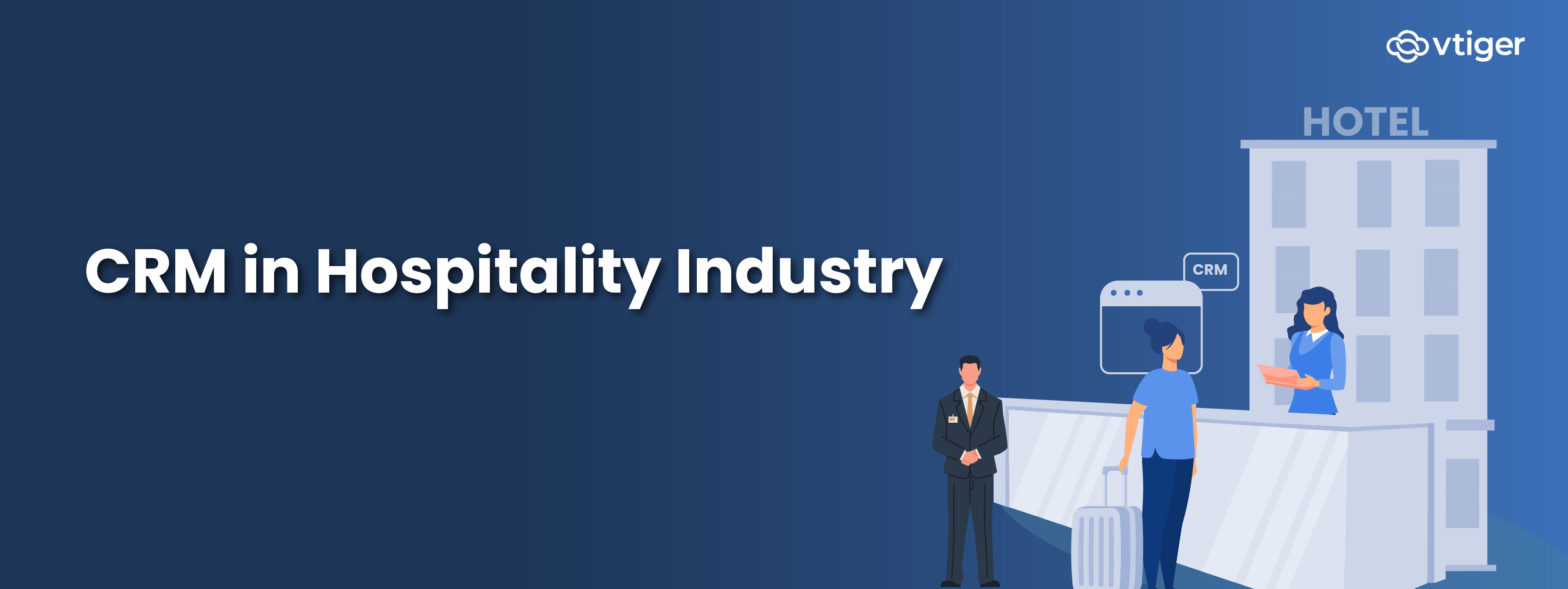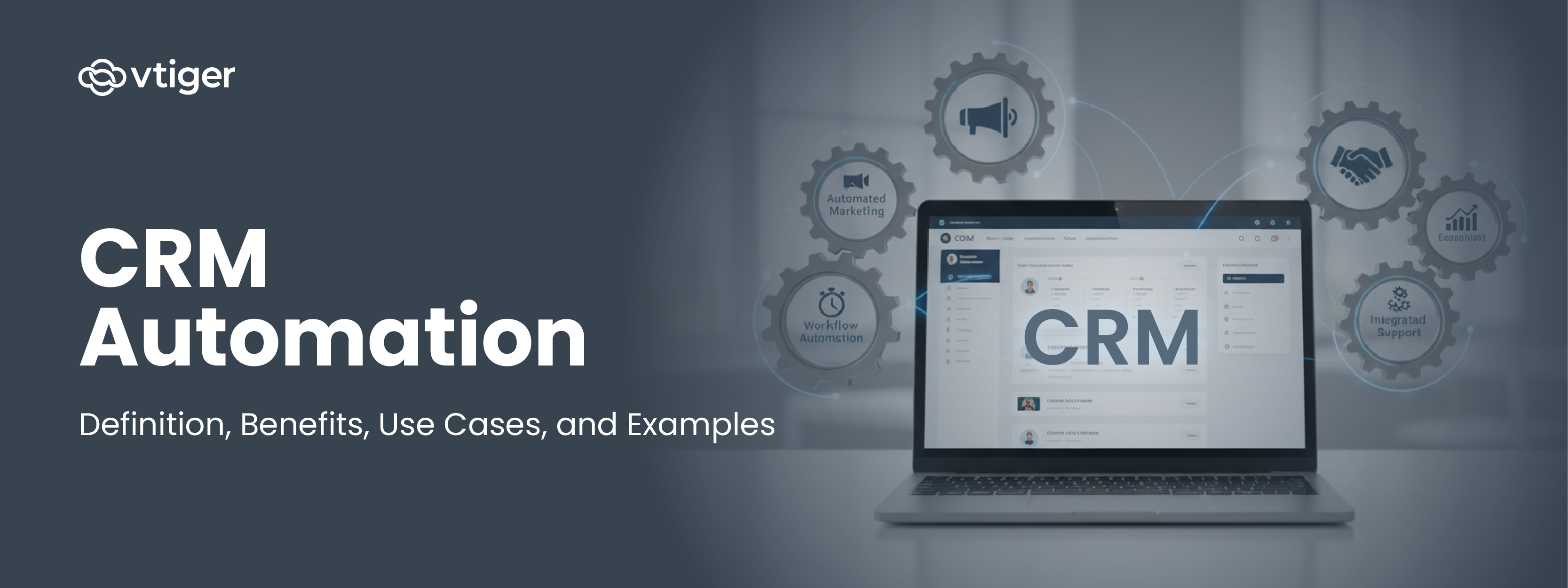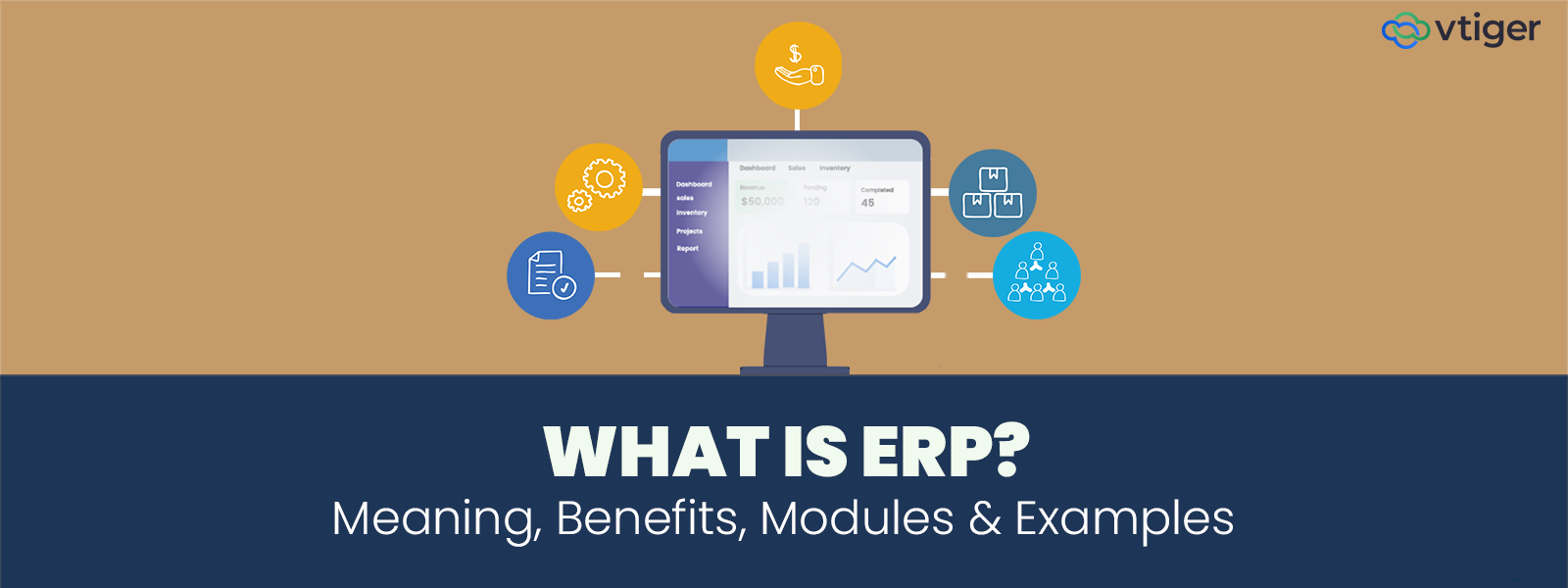Hotels today compete not only on comfort but also on how well they understand their guests. The real differentiator is personalized service, and that begins with data. CRM in hospitality industry gives hotels the ability to capture and organize guest information, turning it into actionable insights.
A well-implemented hospitality CRM tracks preferences, booking patterns, and communication history, helping staff deliver experiences that feel personal rather than generic. Other than improving guest interactions, advanced CRM software simplifies workflows and marketing efforts. Be it a premium solution or an open source CRM, using the right system is now a need of the hour.
What Is Hotel CRM?
A hotel CRM is a specialized CRM software designed to manage guest relationships across every stage of their journey: before, during, and after their stay. Unlike generic tools, a hospitality CRM integrates with hotel systems like PMS, POS, and booking engines to build detailed guest profiles.
It stores preferences, visit history, communication records, and even spending behavior. This centralized data allows hotels to automate communications, personalize offers, and track loyalty more effectively. Many hotels also opt for open source CRM software to customize features according to their service model.
1. Evolving Guest Expectations and Personalization Demand
The modern hospitality ecosystem is driven by hyper-personalization. Guests expect services aligned with their preferences, past interactions, and real-time needs. A hospitality CRM centralizes guest data from PMS, POS, OTAs, and loyalty platforms to build 360-degree profiles.
With segmentation and preference mapping, , hotels can push targeted offers, dynamic pricing packages, and personalized communication across email, SMS, or app notifications. This data-driven engagement strategy increases conversion rates, repeat bookings, and guest satisfaction, directly impacting the Net Promoter Score (NPS) and loyalty program participation.
2. Process Automation and Operational Efficiency
Manual operations increase service delays, errors, and high operational costs per booking. A robust CRM in hospitality industry enables workflow automation for routine yet critical functions like sending booking confirmations, pre-arrival reminders, upselling opportunities as well as collecting feedback after their stay.
Automated task allocation and triggered communication ensure consistent guest experience with minimal staff intervention. Integration with PMS and channel managers further streamlines inventory updates and rate distribution. This reduces staff dependency for repetitive tasks, optimizes labor utilization, and allows high-value resources to focus on guest-facing interactions, improving service quality benchmarks.
3. Revenue Growth Through Data-Driven Upselling
A strategic hospitality CRM functions as a revenue engine by identifying upsell and cross-sell opportunities through predictive analytics. By analyzing historical spend data, stay frequency, and booking channels, CRM algorithms suggest relevant upgrades or add-ons, such as premium suites, dining packages, or spa services.
Hotels running CRM-integrated marketing workflows report up to 34% higher direct bookings and reduced commission expenses. This approach improves RevPAR (Revenue Per Available Room) and TRevPAR (Total Revenue Per Available Room) without proportionally increasing customer acquisition costs.
4. Reduced Customer Acquisition Costs and Better ROI Tracking
Customer acquisition through third-party platforms significantly cuts into margins due to high commission rates. An integrated CRM software reduces OTA dependency by optimizing direct acquisition channels via targeted campaigns and automated retargeting.
Advanced reporting dashboards track ROI for every marketing initiative, mapping conversion rates, cost per acquisition, and guest lifetime value. This transparency in campaign performance allows hotels to reallocate budgets to high-performing segments, improving marketing ROI. Over time, reliance on repeat guests and loyalty programs lowers acquisition costs, improving overall profitability.
Also Read: What is a CRM?
How to Use CRM in the Hotel Industry?
The application of a CRM in hospitality industry goes beyond storing guest data. When integrated with core hotel systems, it becomes a revenue-generation and guest-engagement engine. Below are the primary ways hotels can deploy CRM effectively:
1. Centralized Guest Data Consolidation
A hospitality CRM merges data from PMS, POS, channel managers, and loyalty programs into a single, structured repository. This unified view of guest profiles captures demographics, booking channels, spend behavior, and stay frequency.
Data consolidation supports high-accuracy segmentation, corporate account tracking, and differentiated targeting for repeat, leisure, and corporate guests. Consistent data flow across departments also ensures standardization in service delivery and communication.
2. Automated Guest Lifecycle Communication
Hotels can configure CRM software to automate communication across the entire guest lifecycle. Trigger-based workflows handle booking confirmations, pre-arrival reminders, stay-extension offers, and post-checkout surveys. Cross-channel delivery through SMS, email, and push notifications ensures consistent engagement, while automation reduces manual intervention and lowers the cost per interaction.
3. Personalization for Retention and Upselling
A CRM in hospitality industry leverages stored behavioral data to drive hyper-personalized campaigns. Guest preferences, ancillary spend patterns, and booking history are used to recommend room upgrades, premium services, or loyalty-exclusive packages. AI-enabled recommendation engines further refine upsell targeting, improving ancillary revenue per guest and increasing repeat booking ratios.
4. Analytics for Revenue and Demand Optimization
Predictive analytics within hospitality CRM platforms enable demand forecasting, optimal pricing recommendations, and targeted promotional strategies. Revenue teams can monitor key performance indicators such as RevPAR, TRevPAR, and campaign ROI directly within CRM dashboards. These insights help refine rate distribution, reduce OTA dependency, and allocate marketing budgets toward high-conversion segments.
Also Read: Best sales CRM software in India
Features of CRM in Hospitality Industry for Marketing
A hospitality CRM functions as a marketing enablement system by aligning guest data, automation, and analytics to maximize campaign efficiency and revenue contribution. Hotels use CRM software to segment audiences, execute personalized campaigns, and measure ROI across multiple channels. The following features define its role in marketing operations:
Omnichannel Lead Capture
A robust CRM in hospitality industry integrates with OTAs, social media, booking engines, and paid advertising platforms to capture leads from multiple channels in real time. Consolidated lead data eliminates duplication, improves attribution accuracy, and enables refined segmentation for high-intent prospects. This integration ensures that marketing spends are allocated effectively across acquisition sources.
Marketing Automation
Hotels use hospitality CRM platforms to deploy automated email, SMS, and social media campaigns based on guest behavior and segmentation. Trigger-based automation ensures timely communication for promotions, seasonal offers, and loyalty campaigns. Workflow automation minimizes manual intervention and reduces campaign execution time, improving overall marketing productivity.
Analytics and Reporting
Built-in reporting dashboards track key marketing KPIs, including campaign ROI, click-through rates, conversion rates, and revenue attribution. A data-driven CRM software allows revenue and marketing teams to identify top-performing segments, optimize underperforming campaigns, and allocate budgets toward high-yield marketing channels.
Dynamic Content and Personalization
Advanced hospitality CRM platforms use dynamic content blocks to personalize email and web communication. Content automatically adjusts to guest history, preferences, and browsing behavior, improving engagement and conversion probability. For example, repeat guests may receive targeted upgrade offers, while those who book early receive early-bird discounts.
Loyalty Management Integration
A CRM in hospitality industry supports loyalty program segmentation and automated reward allocation. Hotels can push targeted campaigns such as birthday promotions, post-stay re-engagement offers, or exclusive member deals. Loyalty integration directly contributes to guest retention and repeat booking ratios.
Technical Integrations and Mobile Capability
Seamless integration with PMS, channel managers, and revenue management systems ensures real-time synchronization of rates, inventory, and guest data. Mobile-enabled CRM software allows marketing teams to track campaign performance and engage with guests on the go, enabling faster response times and improved operational flexibility.
7 Benefits of CRM in the Hospitality Industry
A strategically implemented CRM in hospitality industry drives measurable improvements across marketing, revenue, and guest relationship management. Other than personalization and basic automation, it delivers quantifiable business outcomes, as outlined below:
1. Enhanced Guest Lifetime Value (GLTV)
A hospitality CRM tracks complete guest journeys, including frequency of stays, ancillary spend, and cross-property interactions. Revenue teams can calculate Guest Lifetime Value (GLTV) and segment high-value guests for targeted retention strategies. This approach increases repeat bookings and optimizes resource allocation toward guests with the highest long-term revenue potential.
2. Optimized Demand Forecasting
Integrated CRM software supports demand forecasting by analyzing historical booking trends, seasonality, and guest segment behaviors. When combined with revenue management systems, it refines pricing models and package design, improving forecast accuracy and reducing last-minute discounting that erodes profit margins.
3. Reduced Marketing Wastage
CRM-driven segmentation ensures that campaigns are directed only toward high-probability converters, reducing expenditure on low-value audiences. Real-time ROI tracking highlights underperforming campaigns early, allowing marketing budgets to be reallocated to profitable channels. This results in higher marketing ROI and lower cost per acquisition.
4. Strengthened Corporate and Group Sales
For hotels with significant corporate or MICE (Meetings, Incentives, Conferences, and Exhibitions) business, a hospitality CRM provides account-based management. Sales teams can track contract histories, negotiate rate agreements, and identify cross-selling opportunities for events, banquets, or long-term stays, improving corporate revenue contribution.
5. Improved Cross-Property Collaboration
Hotel chains and groups benefit from CRM data centralization, which allows shared guest profiles across multiple properties. Cross-property intelligence supports unified loyalty programs, consistent service standards, and targeted offers for guests who travel between locations, increasing chain-wide retention rates.
6. Real-Time Service Recovery
With integrated feedback modules, a CRM in hospitality industry provides instant alerts for negative reviews or service issues. Front office and guest relations teams can intervene in real time, resolving complaints before checkout and preventing escalations to public review platforms, which directly impacts online reputation scores.
7. Performance Benchmarking Across Departments
A hospitality CRM generates department-wise performance dashboards—tracking sales team closure rates, marketing campaign conversions, and guest service response times. These insights help management identify operational bottlenecks, standardize best practices across departments, and improve overall service delivery efficiency.
How Does CRM in the Hotel Industry Help Attract More Customers?
A CRM in hospitality industry plays a direct role in new customer acquisition by improving market targeting, optimizing digital outreach, and strengthening brand visibility. When integrated with marketing and reputation management systems, it enables hotels to consistently reach high-value segments and convert onlookers into customers.
Behavior-Based Prospect Targeting
Advanced hospitality CRM platforms track digital footprints such as website visits, rate-comparison activities, and abandoned bookings. These behavioral triggers help marketing teams build lookalike audiences and launch targeted campaigns for first-time guests. By analyzing acquisition source performance, hotels can focus marketing budgets on high-conversion channels, reducing cost per new booking.
Reputation and Review Management
Guest reviews directly influence acquisition rates. A CRM integrated with review platforms automates post-stay feedback requests and routes negative feedback to service recovery teams before it escalates publicly. Improved review scores on OTAs and meta-search platforms increase organic visibility, strengthening brand perception and driving higher inbound traffic.
Pre-Arrival Engagement for First-Time Guests
Targeted pre-arrival communication helps convert hesitant prospects. CRM software triggers personalized welcome messages, check-in instructions, and location-specific highlights for new guests. This proactive engagement improves first-time guest confidence, reducing cancellation ratios and increasing confirmed bookings.
Retargeting Abandoned Bookings
A significant portion of potential bookings drop off before payment. Hospitality CRM systems capture these abandoned sessions and initiate retargeting through automated email or SMS reminders with personalized offers or time-sensitive discounts. This improves recovery rates for incomplete bookings, contributing to incremental revenue.
Segment-Specific Campaign Execution
Hotels use CRM-driven segmentation to identify underpenetrated markets, such as corporate travelers, long-stay guests, or leisure segments from specific geographies. Campaigns designed for these micro-segments ensure higher relevance, leading to faster acquisition and increased brand reach in competitive markets.
How to implement a Hospitality CRM?
Rolling out a CRM in hospitality industry is a transformational project that impacts sales, marketing, and service delivery. And proper planning will guarantee clean data migration, process alignment, and measurable commercial impact.
1. Needs Assessment and Goal Definition
The process begins with identifying operational and commercial pain points—low direct booking ratios, fragmented guest data, or poor retention rates. Hotels should clearly define success metrics such as repeat booking percentage, guest satisfaction index, and marketing ROI. Setting these KPIs upfront creates a benchmark for evaluating CRM performance post-deployment.
2. Solution Selection and System Integration
Selecting a hospitality CRM requires careful assessment of its compatibility with existing hotel infrastructure. Integration with PMS, channel managers, and marketing automation platforms is non-negotiable for real-time data flow. Hotels should prioritize CRMs with open APIs and proven hospitality integrations. A pilot rollout or sandbox testing helps validate reporting accuracy and ensures seamless synchronization before scaling across all properties.
3. Data Migration and Cleansing
Migrating historical guest data is critical for building actionable profiles. Hotels must import data from PMS, POS, and loyalty systems while eliminating duplicate records, standardizing booking source tags, and filling profile gaps. Clean data enables precise segmentation, accurate automation triggers, and reliable reporting from day one of CRM usage.
4. Staff Training and Adoption
CRM success depends on staff compliance with defined workflows. Cross-departmental workshops—covering front desk, sales, marketing, and F&B—should focus on standard operating procedures for data entry, profile updates, and campaign management. Access controls and role-based permissions should be enforced, while adoption analytics (login frequency, task completion rates) should be monitored to identify training gaps.
5. Ongoing Optimization and Performance Tracking
Post-implementation, hotels must continuously monitor key metrics through CRM dashboards. Segment performance, campaign ROI, RevPAR contribution, and loyalty-driven revenue should be reviewed regularly. Updating segmentation rules, refining communication templates, and adjusting upsell automation ensures the CRM remains aligned with market shifts and guest behavior trends.
Things to Consider When Using CRM in Hospitality Industry
Adopting a CRM in hospitality industry requires careful evaluation of its technical, operational, and compliance aspects to ensure measurable business results. Hotels must focus on data security, integration readiness, and performance tracking to maximize ROI and avoid underutilization.
Data Security and Compliance
With extensive guest data collection, maintaining strict data governance is critical. A hospitality CRM must comply with GDPR, CCPA, or relevant local regulations, offering built-in consent management and automated data retention policies. Sensitive information such as payment details should be encrypted both at rest and during transmission, while role-based access and audit logs are essential for monitoring unauthorized activity.
System Integration
The CRM should work as part of an interconnected ecosystem rather than an isolated tool. Bi-directional integration with PMS, POS, revenue management systems, and marketing automation platforms is crucial for real-time synchronization of profiles, rates, and booking data. Open API architecture ensures future scalability and smooth third-party software integration.
Scalability and Deployment Model
Hotels planning expansion or managing multiple properties should opt for cloud-based CRM software with elastic scalability. A centralized database, cross-property dashboards, and multi-location segmentation capabilities enable enterprise-wide guest management without manual consolidation, even during peak occupancy periods.
User Adoption and Standardized Workflows
CRM underperformance often stems from inconsistent staff usage. Hotels need structured onboarding programs, department-specific SOPs for data entry, and recurring training sessions. Monitoring user activity through CRM logs helps identify process gaps and ensures teams follow established automation and communication protocols.
Measurement and ROI Tracking
Defining clear KPIs is essential for evaluating CRM performance. Metrics such as campaign-driven booking lift, conversion ratios, guest satisfaction index, and loyalty program retention should be tracked through built-in reporting dashboards. Regular reviews allow hotels to adjust segmentation, refine automation, and align CRM usage with revenue and marketing goals.
Boost Guest Loyalty with Personalized Vtiger Hospitality CRM
Vtiger’s hospitality-focused architecture is designed to operationalize loyalty management at scale, moving beyond generic guest engagement. Unlike traditional CRM in hospitality industry systems, it combines marketing automation, case management, and loyalty program administration within a single interface.
Unified Loyalty and Profile Management
Vtiger consolidates guest identities across booking channels, loyalty programs, and service touchpoints, eliminating duplicate profiles. Its native loyalty module supports tier-based segmentation, dynamic point allocation, and rule-driven reward distribution, removing the need for third-party loyalty software.
Workflow-Driven Retention Programs
Hotels can build workflow-based retention campaigns directly in Vtiger. Pre-configured templates for inactive members, tier reactivation, and high-value guest win-back reduce setup time and ensure consistent execution across properties.
Context-Aware Upsell Execution
Unlike standard CRMs relying solely on historical spend, Vtiger’s real-time contextual data such as in-stay purchases or current service requests that triggers upsell suggestions when the probability of acceptance is highest.
Service Recovery Embedded in Loyalty Framework
Vtiger links its case management system to loyalty scoring, allowing rapid intervention for high-tier members. Unresolved complaints can automatically trigger compensation workflows (bonus points, voucher issuance), protecting retention rates for premium guests.
Loyalty ROI Analytics
The platform provides loyalty-specific KPIs such as churn probability by tier, incremental revenue from reward redemptions, and lifetime value uplift post-campaign. These insights help hotels refine their loyalty structures based on tangible revenue outcomes rather than generic engagement metrics.
Conclusion
The role of a CRM in hospitality industry has evolved into a critical component of revenue and guest management. Hotels using data-driven CRM strategies are improving direct booking ratios, achieving higher repeat guest retention, and optimizing marketing spends with measurable ROI. Centralized guest profiling, automation workflows, and advanced analytics now define how hotels approach customer acquisition and service delivery.
Investing in a scalable and integration-ready hospitality CRM is essential for properties aiming to strengthen loyalty programs, refine upselling initiatives, and maintain a competitive position in a highly dynamic market.
Frequently Asked Questions
A hospitality CRM is a guest relationship management system integrating profile enrichment, lifecycle automation, and revenue attribution analytics to optimize retention, upselling, and acquisition across hotel operations.
Hotels deploy CRM to unify fragmented data silos, automate lifecycle touchpoints, execute precision segmentation, and monitor KPIs like RevPAR uplift, retention ratio, and campaign-level booking attribution.
It leverages real-time profile enrichment, preference scoring, and triggered communication workflows, ensuring service consistency, personalized rate plans, and contextually relevant offers throughout the guest lifecycle.
Critical components include PMS and CRS integration, behavioral segmentation engines, loyalty-tier automation, RevPAR and TRevPAR dashboards, API extensibility, and multi-property data orchestration capabilities.
CRM systems refine audience cohorts, automate rule-based drip campaigns, track channel-wise revenue attribution, and optimize marketing spend allocation based on conversion probability models and response heatmaps.
Modern CRMs support bi-directional API connectivity with PMS, channel managers, POS, and RMS, ensuring synchronized rate distribution, unified guest profiles, and real-time operational reporting.
Advanced CRMs implement tokenized payment data, GDPR-compliant consent tracking, and role-based permissioning with complete audit trails for regulatory and operational security.
Deployment ranges from four to twelve weeks, depending on data normalization, API mapping complexity, and cross-department training for standardized process adoption.
Cloud-based and open source CRM software with modular pricing allow smaller hotels to access core automation, segmentation, and analytics functions without extensive infrastructure investment.
Hotels track repeat booking contribution, segment-level RevPAR growth, acquisition cost trends, and campaign-attributed revenue using CRM dashboards configured for cohort and lifecycle stage reporting.



